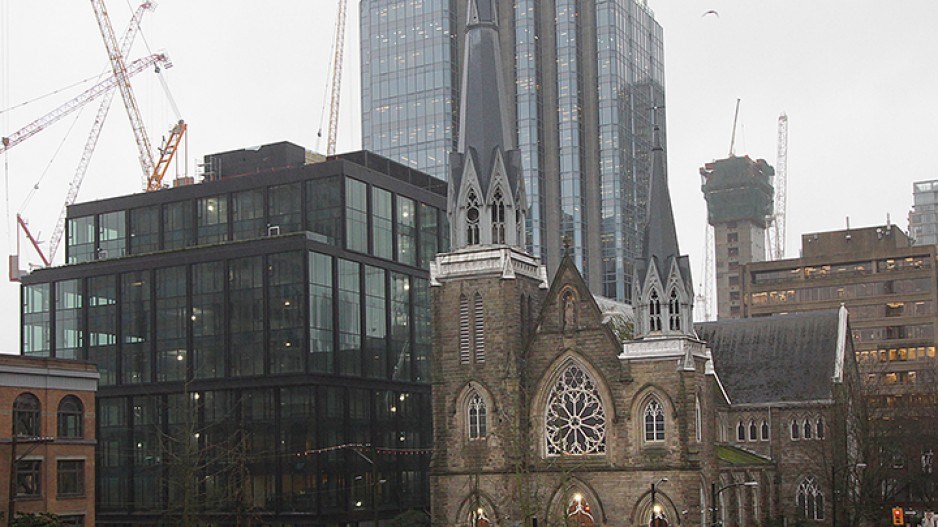Significant religious gatherings and certain ceremonial procedures will remain on pause indefinitely in B.C., based on new pandemic guidelines for economic and social activity provided by the provincial government May 6.
Although no concerns have been raised in this province, some places of worship have been shown to violate physical distancing norms that have resulted in COVID-19 outbreaks.
The key guideline for places of worship under B.C.’s “restart plan” is a continued ban on gatherings of more than 50 people. And should religious facilities restart services with fewer than 50 people, they will be expected to ensure augmented hygiene and physical distancing (two metres) norms, Premier John Horgan said on Wednesday.
“We have been saying to faith leaders – and faith leaders have been using or practising with their congregations safe physical distancing and still being connected, whether it be through virtual gatherings,” said Horgan. “Most temples, most churches are large facilities; you can have a number of people at a safe distance; you can have multiple services throughout the week. There’s a whole bunch of ways individual faiths will try to address these things. It’s about common sense.”
The Archdiocese of Vancouver said there are no current plans for gatherings of fewer than 50 people. The archbishop will need to contemplate any changes after Horgan’s announcement, said a spokesman, who added that churches are holding online services. This means church weddings will remain on pause until each church devises its own restart plan.
Esther Moses-Wood, executive director of Vancouver’s Beth Israel synagogue, envisions gatherings of up to 20 people in her facility, which is just five years old and large enough to accommodate physical distancing.
She said that online services, such as a recent youth dance party with the youth rabbi, will continue. As many as 140 people typically attend Saturday morning prayers, but Horgan said that will not happen until a vaccine is available or herd immunity is achieved.
Some traditions will take a back seat for now. Food is not normally offered during services or September’s high holidays, but a ban on everyone touching the Torah and Holy Book will continue in small processions, and there is no longer sharing of kippahs and prayer shawls.
“As much as we want to open our facility and continue with that social interaction, it’s beyond important that we keep our congregation healthy,” said Moses-Wood.
Muslims, too, are meeting online as the new norm.
“We have become very active in online lectures to our public,” said Sikander Khan, vice-president of religious services for the BC Muslim Association. “Imans are speaking online to the people and getting out their message that way.”
He does not even expect any staggered and limited capacity services to emerge at major mosques.
“The problem is, when you have 500 people as part of congregation, how can you take just 50?”
In any event, Khan said Muslim services are well equipped to handle the new hygiene regiment because worshipers wash their hands and feet before each prayer, which can be up to five times a day.
“If he’s a good Muslim and prays five times a day, that’s a thing he has to do.”
Khan said Muslims do not typically share things, as Jews, Hindus and Christians may do before and during services.
“The only thing is the social distance. That is a major restriction and it doesn’t look like it will ease up anytime soon.”
One slight wrinkle for Muslims may be the continued non-essential international air travel ban, had anyone planned a special trip to Mecca, Islam’s holiest city in Saudi Arabia that sees mass pilgrimages.
Meanwhile, in Richmond, the International Buddhist Temple foresees no changes to its pandemic plan. The temple is likely to remain closed to the public. •
This story is part of a series on the next steps for B.C. businesses across a wide range of sectors as the province edges closer to the easing of COVID-19 safety measures. Check out all previous stories in this series, and stay tuned for further stories being published throughout this week.
B.C.'s road to recovery: Not coming to an arena near you any time soon
B.C.'s road to recovery: Curtain to rise slowly for Vancouver’s entertainment scene
B.C.’s road to recovery: Build trust when reopening offices: experts
B.C.’s road to recovery: Factories consider robotics in post-pandemic retooling
B.C.’s road to recovery: Libraries set for phased return to lending
B.C.’s road to recovery: COVID-19 will radically overhaul the aviation industry
B.C.’s road to recovery: Pandemic accelerates department stores' omnichannel uptake




